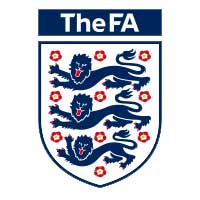
Related Downloads
FA Bitesize Guide introduction - Leadership
Tom Seed, solicitor in our sports team, introduces our FA guide on leadership.
Watch VideoAll VideosThe leaders of your club
In this guide, when we mention your "leaders", we mean those people who are ultimately responsible for your club’s success (or otherwise).
If you are an incorporated club, your leaders will be your board of directors if you are a company, or your board of trustees if you are a charity. If you are an unincorporated club, your leaders will typically be called your "management committee". For ease, in this guide, we refer simply to your "leadership team" throughout.
Don’t forget that if your club is unincorporated, your leadership team will be more likely to be held personally liable for anything that goes wrong at the club than leaders of an incorporated club. If you’d like to learn more about legal structures and liability, please see our bitesize guide "Incorporation and Legal Structures".
The role of your leadership team
In general terms, your leadership team is responsible for things such as:
- Setting your club’s strategic goals.
- Safeguarding your club’s assets.
- Making sure all relevant rules and regulations are adhered to.
- Making sure that appropriate policies and procedures are in place and are complied with.
Your leadership team is ultimately responsible for making sure that the club is sustainable. Its members should lead by example and help to set and promote a positive ethos and culture at your club.
Roles, skills and competence
It’s essential to get the composition of your leadership team right in terms of diversity of skills and experience.
Typically, we see members of the leadership team taking on one (or sometimes more) of the roles listed below, and so it’s important that those taking on a specific role have the relevant skills, experience, time and enthusiasm to do so.
Club leadership roles at a glance
| Role | Responsibilities |
| Chairperson | Responsible for the overarching direction, operations and culture of the club. They will lead meetings, manage the other leaders and be a/the key figurehead for the club. |
| Club secretary | The head of the club’s administrative wing and compliance, responsible for correspondence and communications, meeting minutes and liaising with match officials, leagues, governing bodies and more. |
| Club treasurer | Manages the club's finances, including financial reporting, annual accounts, budgeting, fundraising, membership fees, pitch hire and staff payments. |
| Club welfare officer | Oversees the welfare of the club’s entire membership, with a special focus on children and young people, liaising with FA safeguarding leads to ensure the club has appropriate policies in place and dealing with issues or concerns raised. |
Remember that if your club has charitable or CASC status, there are strict requirements on who can sit on your leadership team. The Charity Commission has useful guidance on this, as does HMRC.
To access a role profile template for the above roles, please visit the England Football website.
Your leadership team and your governing document
Your governing document – whether that be your constitution, your rules or your articles of association – should explain (amongst other things):
- How many people should be on your leadership team.
- How many members of your leadership team must attend a meeting for decisions made at that meeting to be valid (otherwise known as the quorum).
- How members of the leadership team are to be appointed (e.g. by your legal members at an AGM or at any time by others on the leadership team).
- When members of the leadership team may be removed. It’s good practice to have a code of conduct in place for members of the leadership team, with any breaches of that leading to the right to remove.
- How long people can sit on the leadership team before they have to retire. It’s good practice to set out a fixed term (e.g. maximum of 3 terms of 3 years) to allow for new people to join and to bring fresh ideas and a new dynamic to the board. However, for some clubs we recognise that recruiting new volunteers can be difficult.
- How your leadership team can make decisions.
Decision making
It’s up to you to determine how you’d like your club to be managed. The most common approach is to assign key decisions to the board on a "majority vote" basis. Key decisions could include, by way of example:
- Your club’s budget.
- Sponsorship deals.
- Policies (such as recruitment).
- Player contracts.
- Supporter engagement.
Your leadership team should meet as often as needed to make sure that your club’s affairs are well organised and effectively monitor whether the strategy set for your club is on track.
If a particular vote reaches a deadlock or a 50/50 split, your chairperson may be entitled to a second or casting vote, although you should check your governing document to make sure that is the case.
When a decision is made, all members of your leadership team should stand by it (even if some disagree with the decision). Your leadership team should all maintain a united front.
It’s important to ensure that minutes of every meeting are taken and kept by your club, and that all decisions are formally recorded in those minutes.
It’s not uncommon for a club’s leadership team to delegate, or in other words, hand over responsibility for operational matters to senior officials and/or other members of staff within the club. In larger clubs, sub-committees may be established to oversee specific sections of the club, such as youth development or finance.
The activities and decisions made by those with delegated authority should be reported back to the board who ultimately retain oversight and responsibility for those activities and decisions.
Speak to our team
To speak to a member of our friendly sports team, please contact us at [email protected] or on 0191 211 7799.
get in touch






